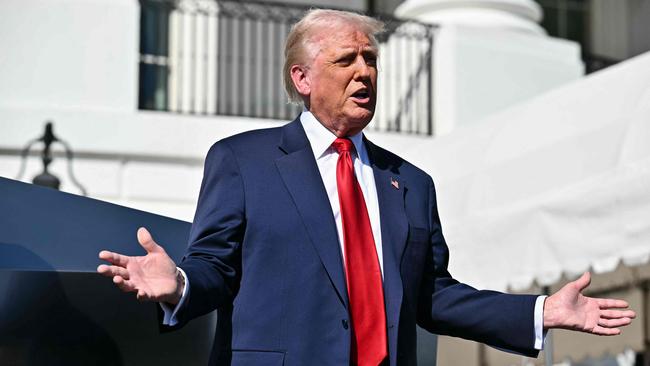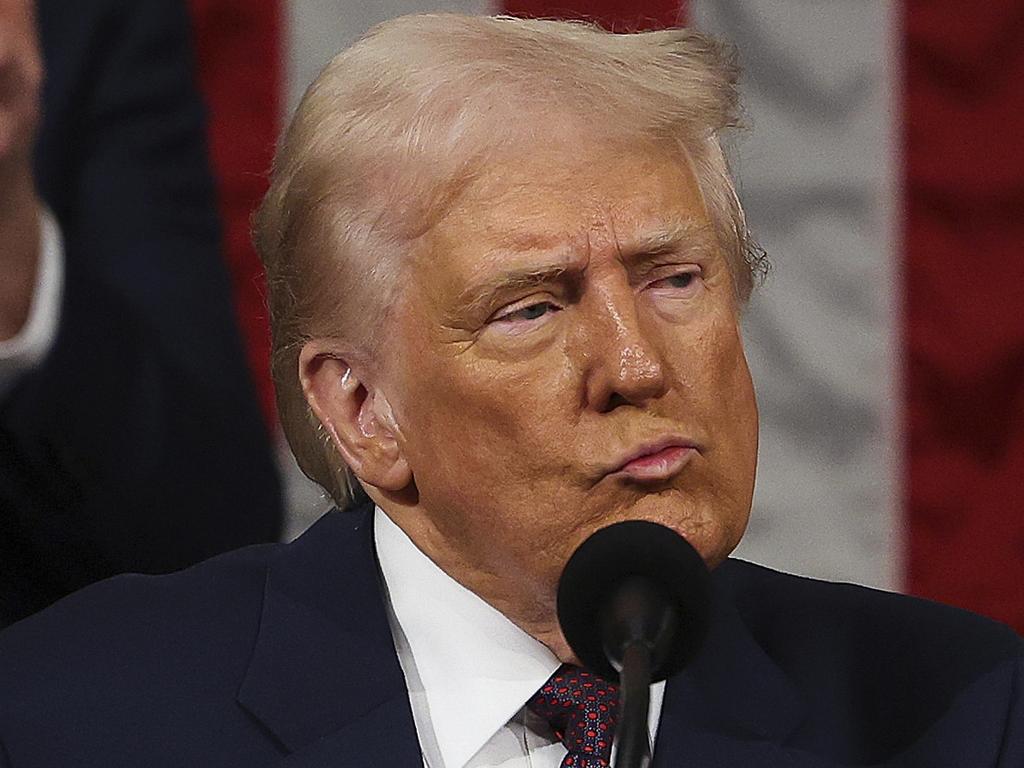
It’s like watching bulls in the paddock staking out their positions on tariffs. At this stage, Australia is on the other side of the fence because our aluminium and steel industries are so small and their exports to the US are almost immaterial – around $1bn in total or 0.2 per cent of all goods exported.
This doesn’t mean that Donald Trump’s decision to impose substantial tariffs on aluminium and steel imports to the US, without any exemptions at this stage, is unimportant. Trade wars – and this is what seems to be developing – always lead to economic dislocation and higher prices. It’s not clear that there are any winners, including the country firing the starting gun.
At this stage, Australia is best served by restating the case for free trade and refraining from implementing any retaliatory measures. It would be an act of madness for Australia to impose tariffs on goods and services imported from the US. Fortunately, at this stage, there hasn’t been much mention of this option.
The two countries with most at stake are China and Canada. China is a substantial exporter of steel to the US and Canada exports a great deal of primary aluminium and aluminium scrap to the US. There is an Australian connection here because Rio Tinto owns Alcan, the largest aluminium company operating in Canada. And 10 per cent of Rio Tinto shares are held by the Chinese company Chinalco.
The point here is that there are clearly specific commercial impacts from the new tariffs as well as broader effects on the sharemarket. At this stage, sharemarkets around the world are taking a hit because of Trump’s actions. The unpredictability of his decision-making is making matters worse. It is now important for our political leaders to try to understand Trump’s thinking on tariffs rather than simply plead for exemptions. Newly installed Treasury Secretary Scott Bessent gave some insight into this thinking when he said “access to cheap goods is not the essence of the American dream. (Rather, this means) any citizen can achieve prosperity, upward mobility and economic security”.

According to Bessent, the international trade system has been corrupted by “wage suppression, currency manipulation, intellectual property theft, nontariff barriers and draconian regulations”.
There are some obvious truths in these words. People talk about a rules-based trading system knowing full well that the rules are often flouted, particularly by China. But Australia shouldn’t get on any sort of high horse because we have anti-dumping penalties as well as direct and indirect subsidies to many industries, including steel and aluminium. We may have largely removed tariffs, but a range of non-tariff barriers remain in place.
The best outcome would be if countries agree to remove the barriers to international trade, so countries are competing on reasonably level playing fields. Recall here that Canada has some absurdly protective arrangements covering some of its agricultural activities, including the chicken and dairy industry. Canada retains some legislated collective marketing arrangements that Australia abolished many years ago.
To the extent that the US wants to reignite its manufacturing sector – and let’s face it, this is an ambition of the Albanese government too – the best way forward is to create highly competitive conditions for investment and factory operations. Having cheap and affordable energy is a very good start, as are facilitative, light-handed regulations and low rates of tax.
Imposing tariffs on competing imports is a dreadful option. Not only are tariffs a tax on the poor, it’s also unclear whether local industries working behind high tariff barriers flourish. In Australia’s case, both the automotive and the textiles, clothing and footwear industries shrank when tariffs were still very high.
The best advice at this stage is to hang on to your hat. Our beef exports to the US are quite substantial and would likely be hit by any reciprocal tariff imposed by the US. Seeking out other markets may make sense whatever happens. We’re in for a wild ride, which may end quite badly.






